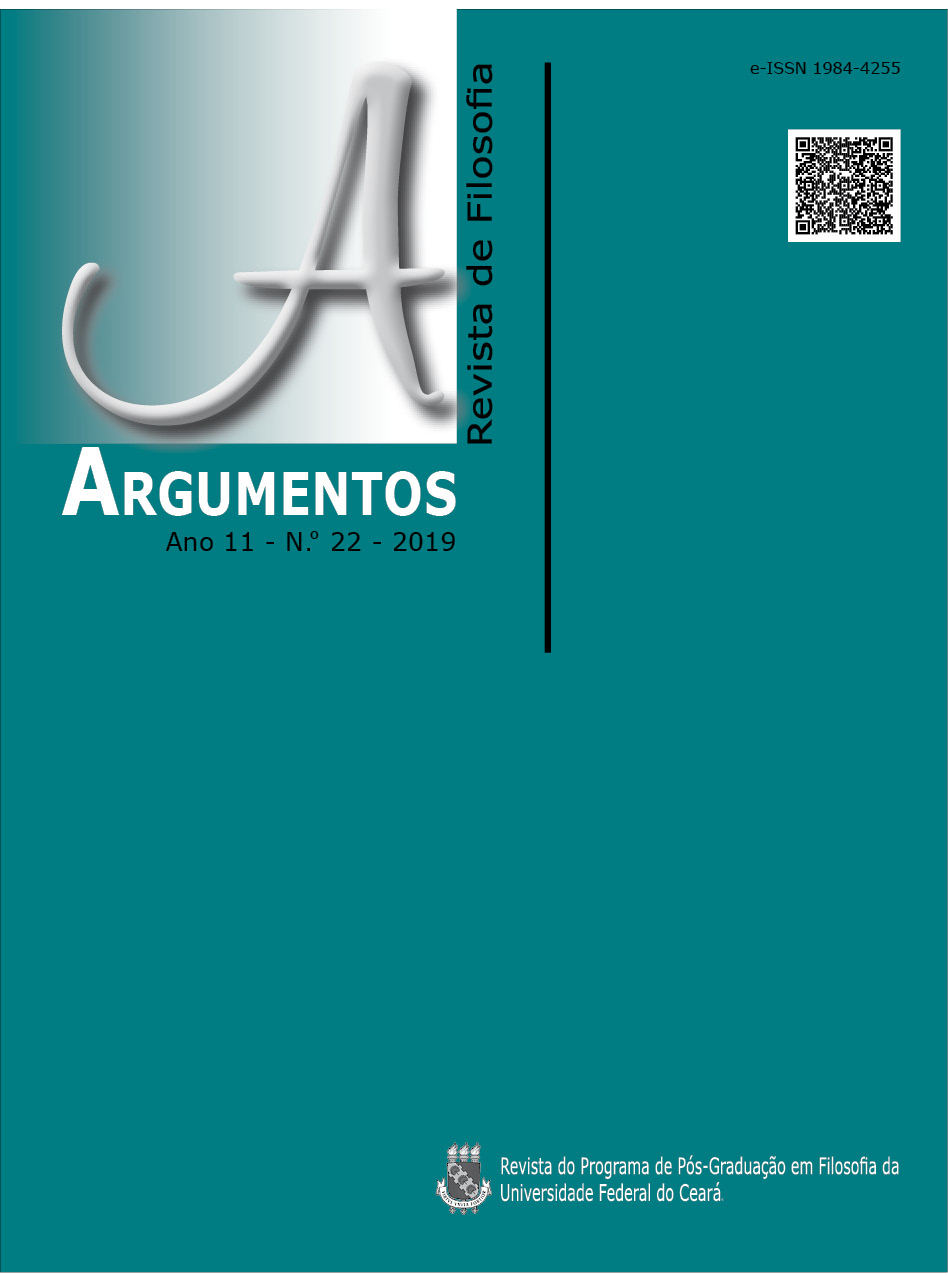End and continuity of art according to Hegel’s “Courses of Aesthetics”
DOI:
https://doi.org/10.36517/Argumentos.22.8Keywords:
Art. Spirit. Hegel. Georg Wilhelm Friedrich (1760-1831).Abstract
I intend to present what would follow to the theory of the end of Art in Hegel’s “Courses of Aesthetics”, in terms of functions attributed to the creation and reception of works of art in contemporary times. After shortly explaining what it means, in this context, to speak of “the end of Art,” I sustain the interpretative hypothesis that the end of metaphysical Art does not imply that no more authentic works of art are produced, for it is considered by Hegel that, essentially, there would continue to be art insofar as it continues to be spiritual, not natural production. I indicate that the texts allow to envisage that their origin would only be displaced, as spiritual work: from the Content of the Absolute Spirit to the content of the individual spirit of each contemporary artist. I conclude considering if the Hegelian definitions may be a still valid criterion in contemporary philosophical Aesthetics.References
JIMENEZ, M. O que é Estética? (Tr. Fulvia M. L. Monteiro; rev. Alvaro L. M. Valls). São Leopoldo, RS: UNISINOS, 1999.
HEGEL, G. W. F. Cursos de Estética. Vols. I e II. (Tr. e n. Marco A. Werle, Oliver Tolle; cons. Victor Knoll; rev. Márcio Seligmann-Silva). 2a ed., rev.. São Paulo: EDUSP, 2001.
WERLE, M. A.. A questão do fim da arte em Hegel. São Paulo: Hedra, 2011.
Downloads
Published
Issue
Section
License
Argumentos magazine is licensed under an International Creative Commons Attribution License.
The Magazine uses CC BY inclusion
1) The authors retain the copyright granted to the magazine or the right to initial publication, with the work regularly licensed under the Creative Commons Attribution, which allows the sharing of the work with acknowledgment of authorship and initial publication in this magazine.
2) The authors are authorized to contract additional applicable contracts, for non-exclusive distribution of the version of the work published in this journal (for example, publication in the institutional repository or as a chapter of the book), recognition of authorship and initial publication in this journal.
3) Authors are authorized and encourage to publish and distribute their work online (for example, in institutional repositories or on their personal pages) at any time before or during the editorial process, as they can generate productive changes, as well as increase the impact and reference of published work.




.jpg)










._._3.png)
1.jpg)
._._._.png)
